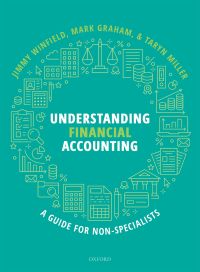Answered step by step
Verified Expert Solution
Question
1 Approved Answer
can you please help me determine the following measures for 20Y2, rounding to one decimal place, except for dollar amounts, which should be rounded to
can you please help me determine the following measures for 20Y2, rounding to one decimal place, except for dollar amounts, which should be rounded to the nearest cent. Use the rounded answer of the requirement for subsequent requirement, if required. Assume 365 days a year. 1-18 




2011 Measures of liquidity, Solvency and profitability The comparative financial statements of Marshall Inc. are as follows. The market price of Marshall Inc. common stock was $ 65 on December 31, 2012. Marshall Inc. Comparative Retained Earnings Statement For the Years Ended December 31, 2012 and 2041 2012 Retained earnings, January 1 $ 2,836,650 $ 2,402,650 Net income 624,800 492,100 Total $ 3,461,450 $2,894,750 Dividends On preferred stock $ 10,500 $ 10,500 On common stock 47,600 47,600 Total dividends $ 58,100 $ 58,100 Retained earnings, December 31 $ 3,403,350 $ 2,836,650 20Y1 $ 3,292,280 1,165,900 $ 2,126,380 $ 935,620 Marshall Inc. Comparative Income Statement For the Years Ended December 31, 2012 and 2041 2092 Sales $ 3,573,350 Cost of goods sold 1,267,280 Gross profit $ 2,306,070 Selling expenses $ 766,140 Administrative expenses 652,630 Total operating expenses 1,418,770 Income from operations $ 887,300 Other income 46,700 $934,000 Other expense (interest) 224,000 Income before income tax $ 710,000 Income tax expense 85,200 Net income $ 624,800 549,490 1,485,110 $ 641,270 40,930 $ 682,200 123,200 $ 559,000 66,900 $ 492,100 Dec 31, 2011 Marshall Inc. Comparative Balance Sheet December 31, 2012 and 20Y1 Dec. 31, 2012 Assets Current assets Cash $ 648,280 Marketable securities 981,180 Accounts receivable (net) 671,600 Inventories 511,000 Prepaid expenses 122,648 Total current assets $ 2,934,708 Long-term investments 1,855,322 Property, plant, and equipment (net) 3,640,000 Total assets $ 8,430,030 Liabilities Current liabilities $ 946,680 Long-term liabilities Mortgage note payable, 8 % $ 1,260,000 Bonds payable, 8 % 1,540,000 Total long-term liabilities $ 2,800,000 Total liabilities $ 3,746,680 $ 647,190 1,072,480 627,800 394,200 129,440 $ 2,871,110 855,587 3,276,000 $ 7,002,697 $ 1,346,047 $ 0 1,540,000 $ 1,540,000 $ 2,886,047 Accounts receivable (net) 671,600 627,800 Inventories 511,000 394,200 Prepaid expenses 122,648 129,440 Total current assets $ 2,934,708 $ 2,871,110 Long-term investments 1,855,322 855,587 Property, plant, and equipment (net) 3,640,000 3,276,000 Total assets $ 8,430,030 $ 7,002,697 Liabilities Current liabilities $ 946,680 $ 1,346,047 Long-term liabilities Mortgage note payable, 8 % $ 1,260,000 $0 Bonds payable, 8 % 1,540,000 1,540,000 Total long-term liabilities $ 2,800,000 $ 1,540,000 Total liabilities $ 3,746,680 $ 2,886,047 Stockholders' Equity Preferred $ 0.70 stock, $ 40 par $ 600,000 $ 600,000 Common stock, $ 10 par 680,000 680,000 Retained earnings 3,403,350 2,836,650 Total stockholders' equity $ 4,683,350 $ 4,116,650 Total liabilities and stockholders' equity $8,430,030 $ 7,002,697 Required: Determine the following measures for 2012, rounding to one decimal place, except for dollar amounts, which should be rounded to the nearest cent. Use the rounded answer of the requirement for subsequent requirement, if required. Assume 365 days a year. 3.1 Required: Determine the following measures for 2012, rounding to one decimal place, except for dollar amounts, which should be rounded to the nearest cent. Use the rounded answer of the requirement for subsequent requirement, if required. Assume 365 days a year. 1. Working capital 1,988,028 2. Current ratio 3. Quick ratio 2.43 4. Accounts receivable turnover 5. Number of days sales in receivables days 6. Inventory turnover 7. Number of days' sales in inventory days 8. Ratio of fixed assets to long-term liabilities 9. Ratio of liabilities to stockholders equity 10. Times interest earned 11. Asset turnover 12. Return on total assets 13. Return on stockholders' equity 14. Return on common stockholders' equity 15. Earnings per share on common stock 16.Price-eamings ratio % % % 17. Dividends per share of common stock 18. Dividend yield % 




Step by Step Solution
There are 3 Steps involved in it
Step: 1

Get Instant Access to Expert-Tailored Solutions
See step-by-step solutions with expert insights and AI powered tools for academic success
Step: 2

Step: 3

Ace Your Homework with AI
Get the answers you need in no time with our AI-driven, step-by-step assistance
Get Started


